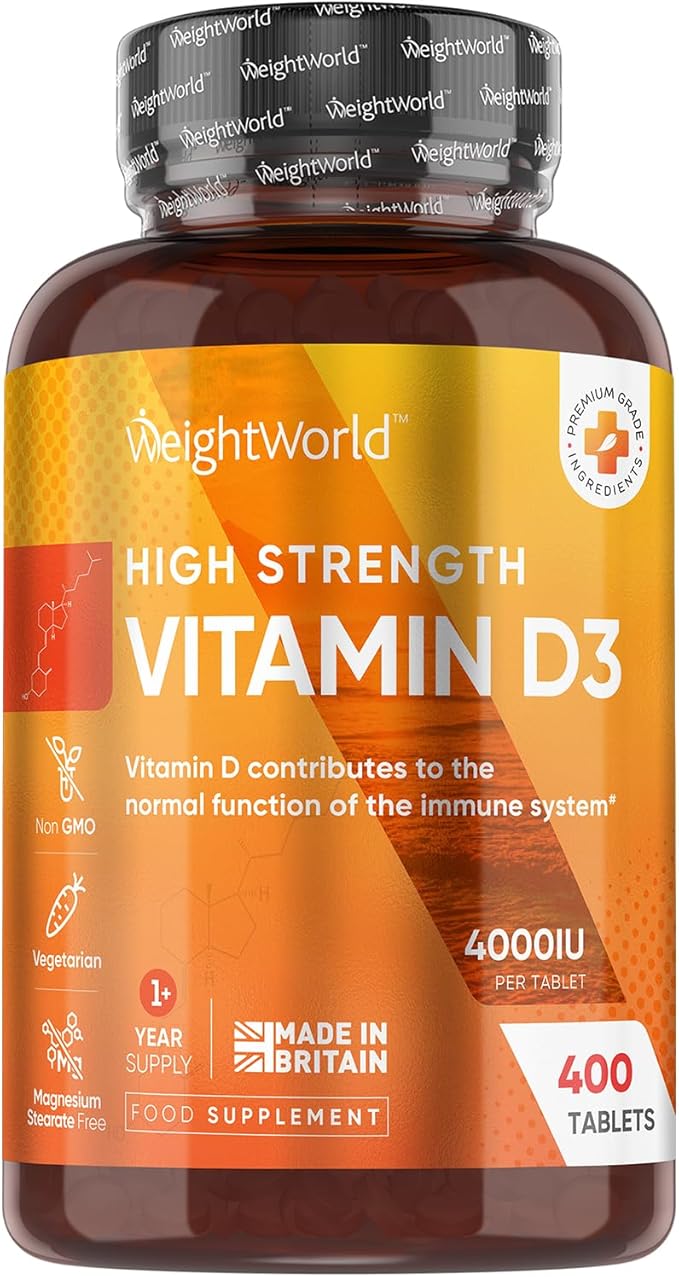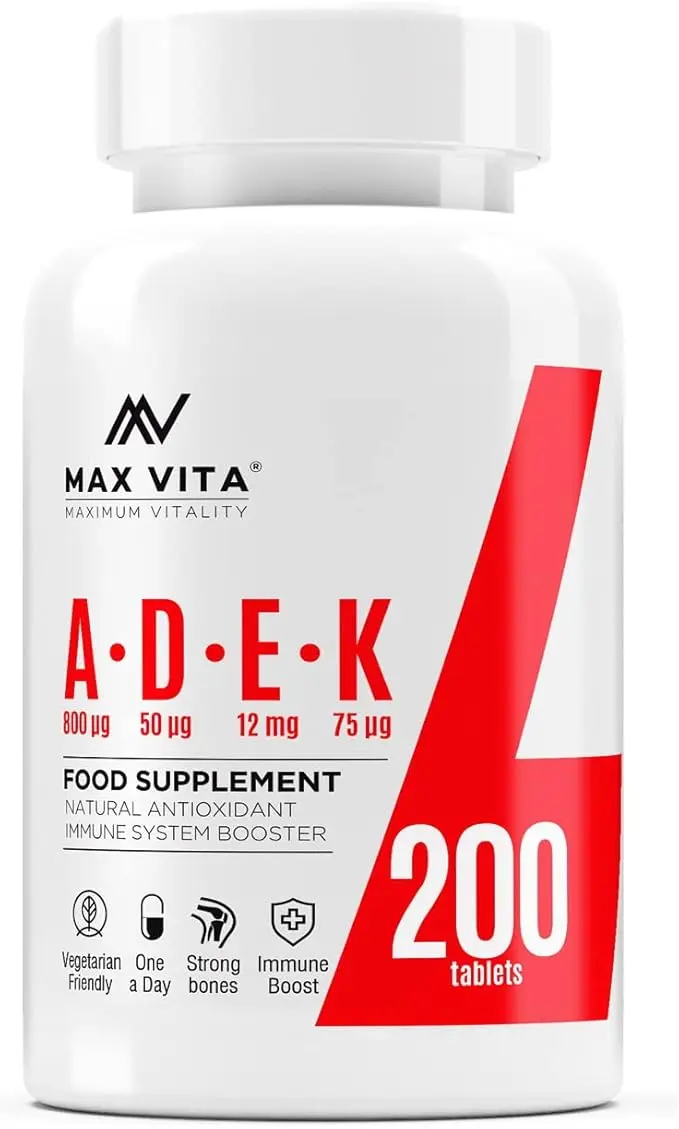In the world of biohacking, we're constantly looking for that edge—the subtle shifts that create massive improvements in how we feel, perform, and age. While fancy supplements and cutting-edge tech get most of the attention, I've found that mastering the fundamentals often delivers the biggest returns on investment.
Today, I want to shine a light on what I call the "DAKE vitamins" (D, A, K, and E)—four fat-soluble powerhouses that work synergistically to optimise virtually every system in your body. When properly balanced, these nutrients can dramatically upgrade your energy, immunity, brain function, and longevity potential.
After years of self-experimentation and tracking my biomarkers, I've discovered that most people are deficient in at least one of these critical vitamins—and the consequences are stealing your performance without you even knowing it.
Let's dive in.
Vitamin D: The Master Hormone Regulator
Despite being called a vitamin, D is actually a hormone precursor that influences over 1,000 different genes. It's like the master key that unlocks doors throughout your biological house.
Why You're Likely Deficient
Our indoor lifestyle is the primary culprit. Our ancestors spent most of their days outside, receiving full-spectrum sunlight. Today, the average person spends over 90% of their time indoors, behind glass that blocks UVB rays (the ones needed for vitamin D production).
Even if you do get outside, factors like:
- Geographic location (less UVB above 37° latitude)
- Darker skin pigmentation (natural sunscreen)
- Age (older skin produces less D)
- Sunscreen use (blocks vitamin D production)
All contribute to what I consider an epidemic of deficiency.
Performance Impacts
When your D levels are suboptimal, you're operating at a fraction of your potential:
- Weaker immune response
- Decreased muscle strength and recovery
- Lower testosterone production
- Impaired cognitive function
- Compromised bone health
- Increased inflammation
The Biohacker's Approach
Optimal vitamin D isn't about reaching the minimum reference range—it's about finding your personal sweet spot for peak performance.
While conventional medicine considers anything above 30 ng/mL "sufficient," my own experiments and data suggest aiming for 50-80 ng/mL for optimal function. This is where I've seen the most significant improvements in recovery, immunity, and energy.
Action steps:
- Test your levels (request a 25-hydroxy vitamin D test)
- Get smart sun exposure (midday sun for 15-30 minutes when your shadow is shorter than you are)
- Supplement strategically (vitamin D3 with K2—more on that crucial pairing shortly)
- Retest every 3-6 months to dial in your personal dose
High Strength
Vitamin D3
Vitamin D 4000IU is a supplement designed for daily use when sunlight exposure is limited.
Each serving provides 4000IU of Vitamin D in a robust formula from WeightWorld. Each bottle contains 400 micro tablets for 14 months (1+ year supply). Just take 1 tablet a day!
Vitamin D tablets in Cholecalciferol form is crafted for both women & men, these high strength Vitamin D3 Tablets are suitable for vegetarians. Manufactured in the UK under strict GMP standards, each 8mm tablet is easy to swallow.
Vitamin A: The Cellular Communication Enhancer
Vitamin A might be the most underrated player in the biohacking world. It's essential for vision (obviously), but its true superpower lies in how it helps cells communicate and differentiate.
The Retinol Revolution
There are two forms of vitamin A:
- Preformed vitamin A (retinol): Found in animal products and immediately usable
- Provitamin A carotenoids (like beta-carotene): Found in plants and require conversion
Here's what most nutrition advice gets wrong: the conversion of plant-based carotenoids to usable retinol is wildly inefficient in many people. Depending on your genetics, you might only convert 3-10% of the beta-carotene you consume.
This means you can eat all the carrots and sweet potatoes you want and still be functionally deficient in active vitamin A.
Performance Impacts
Suboptimal A status creates problems that most people never connect to this nutrient:
- Compromised skin barrier (leads to increased inflammation)
- Reduced night vision and eye adaptation
- Impaired immune response
- Poor cellular differentiation (critical for repair processes)
- Decreased reproductive health
- Reduced thyroid function
The Biohacker's Approach
For optimal vitamin A status, I recommend a two-part strategy:
- Include regular sources of preformed vitamin A (pasture-raised eggs, grass-fed liver, wild-caught fish)
- Support conversion efficiency with zinc, iron, and protein sufficiency
If you're someone who avoids animal products entirely, consider testing your retinol levels and potentially supplementing with a low-dose, high-quality preformed vitamin A.
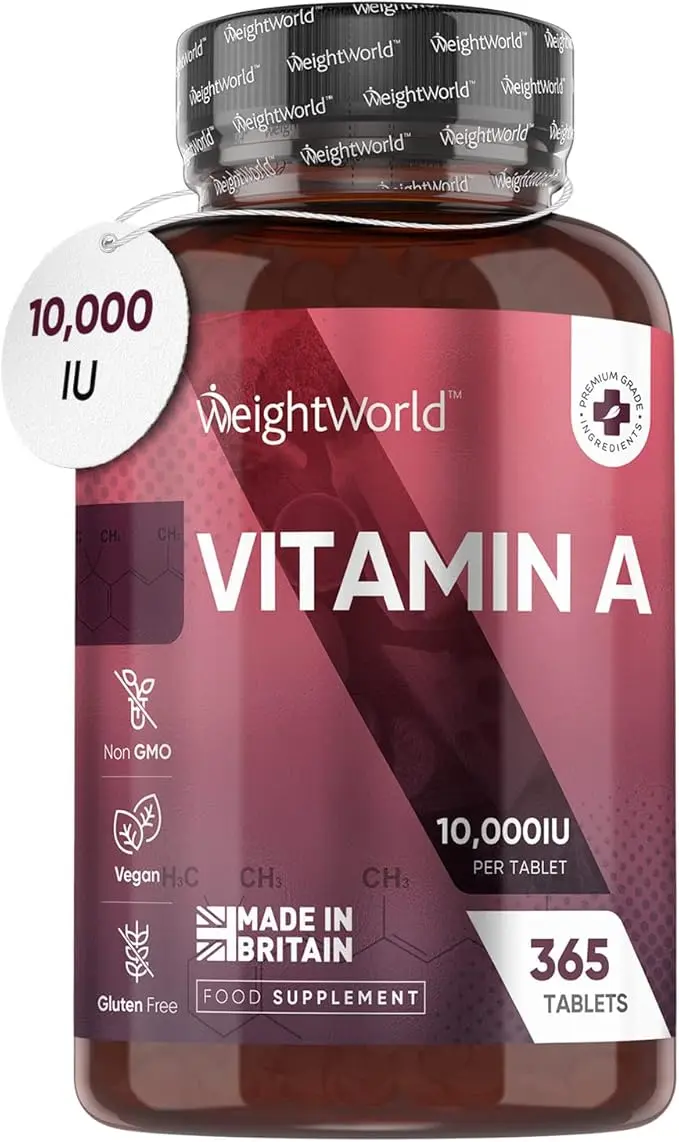
Vitamin A
A British-grown family business with decades of experience in formulating and manufacturing 200+ vitamins, food supplements and health devices.
All our products are made using premium quality ingredients and have gone through intensive research to meet the daily nutritional requirements of people across the world.
We create UK Made, GMP-certified products aimed at promoting a healthier body & mind for you and your family.
Vitamin K2: The Calcium Traffic Director
If there's one nutrient that exemplifies the difference between surviving and thriving, it's K2. This vitamin is virtually absent from the modern diet, yet it's essential for properly utilizing the calcium we consume.
K1 vs. K2: Critical Differences
Vitamin K comes in two main forms:
- K1 (phylloquinone): Found in leafy greens, primarily helps with blood clotting
- K2 (menaquinones): Directs calcium to bones and teeth while keeping it out of soft tissues
K2 exists in several subtypes (MK-4 through MK-13), with MK-4 and MK-7 being the most studied for human health.
The Calcium Paradox
Here's where K2 becomes crucial: without adequate K2, calcium can accumulate in your arteries, kidneys, and other soft tissues rather than being deposited in your bones. This creates the "calcium paradox"—simultaneous osteoporosis and arterial calcification.
This is why simply taking calcium supplements without K2 may actually increase cardiovascular risk!
Performance Impacts
Optimised K2 status affects:
- Arterial flexibility and cardiovascular health
- Bone density and strength
- Dental health (reduced cavities)
- Skin elasticity and wrinkle prevention
- Insulin sensitivity
- Brain health and reduced calcification
The Biohacker's Approach
The best food sources of K2 come from animals fed their natural diets (grass-fed dairy, particularly cheese) and fermented foods (especially natto).
For supplementation, I prefer a combination of MK-4 and MK-7 for comprehensive coverage. The dosage depends on your diet and calcium intake, but 100-200mcg daily is a reasonable starting point.
The K2-D3 synergy is particularly powerful, as vitamin D increases your body's production of vitamin K-dependent proteins—which then need K2 to function properly.
Vitamin K2
Our pure K2 vitamin supplements are sourced naturally from Geraniol and Farnesol, found in essential flower oils.
What distinguishes it is that every Vit K2 MK7 tablet delivers a potent 200 mcg dose of Vitamin K2 as Menaquinone (100% All-Trans MK-7), the most efficient and easily absorbed form of Vitamin K.
Menaquinone-7 (MK7), plays a crucial role in directing calcium to bones while preventing it from accumulating in undesired areas (arteries).
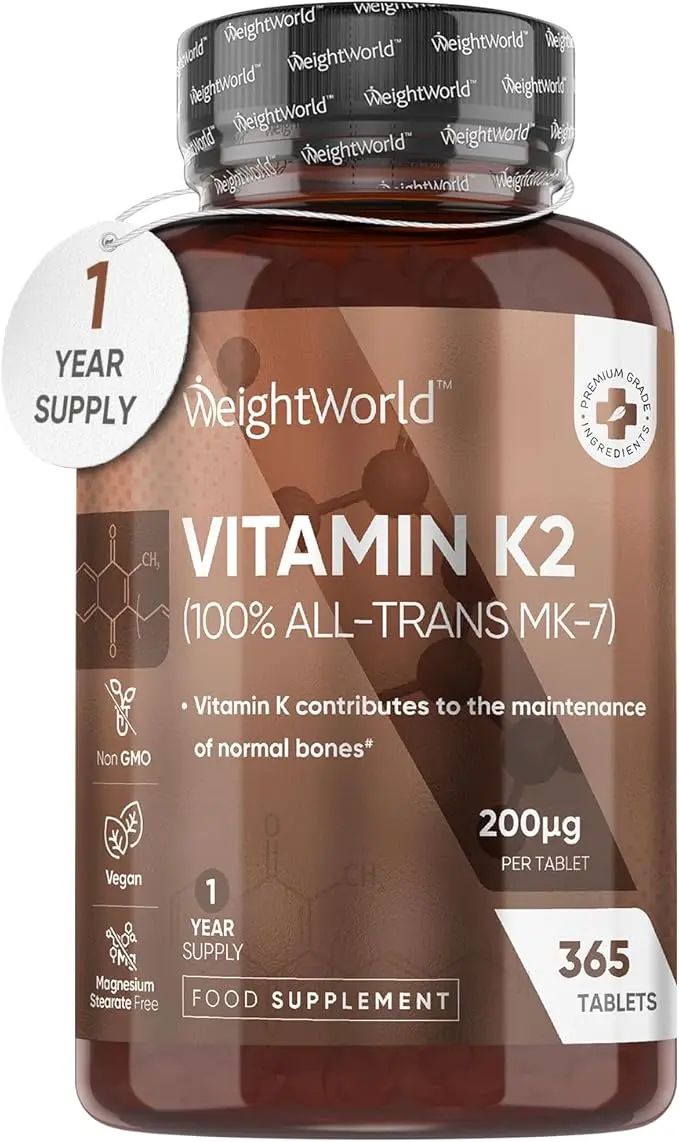
Vitamin E: The Cellular Protector
Vitamin E is the unsung hero of cellular protection, especially for cell membranes. But here's what most people get wrong: vitamin E isn't a single compound—it's a family of eight different forms (four tocopherols and four tocotrienols).
Beyond Alpha-Tocopherol
Most supplements only contain alpha-tocopherol, which is just one-eighth of the vitamin E complex. Research increasingly shows that the other forms—particularly gamma-tocopherol and the tocotrienols—may have even more powerful benefits.
Alpha-tocopherol alone can actually deplete these other forms, potentially creating imbalances.
Cellular Membrane Optimisation
Every cell in your body is surrounded by a lipid membrane—think of it as your cellular skin. These membranes need vitamin E to maintain their integrity, fluidity, and signaling capabilities.
When you optimise vitamin E status with the full spectrum of compounds, you're essentially upgrading every cell's protective barrier.
Performance Impacts
Optimal vitamin E status influences:
- Cellular resilience to oxidative stress
- Mitochondrial function and energy production
- Skin health and UV resistance
- Cognitive protection
- Hormonal signaling
- Immune modulation
The Biohacker's Approach
For vitamin E, I recommend focusing on food sources first:
- Avocados
- Olive oil
- Nuts and seeds (particularly almonds and sunflower seeds)
- Fresh, properly stored oils
If supplementing, look for a mixed tocopherol and tocotrienol formula rather than isolated alpha-tocopherol. Dosages of 100-200 IU daily are reasonable for most people.
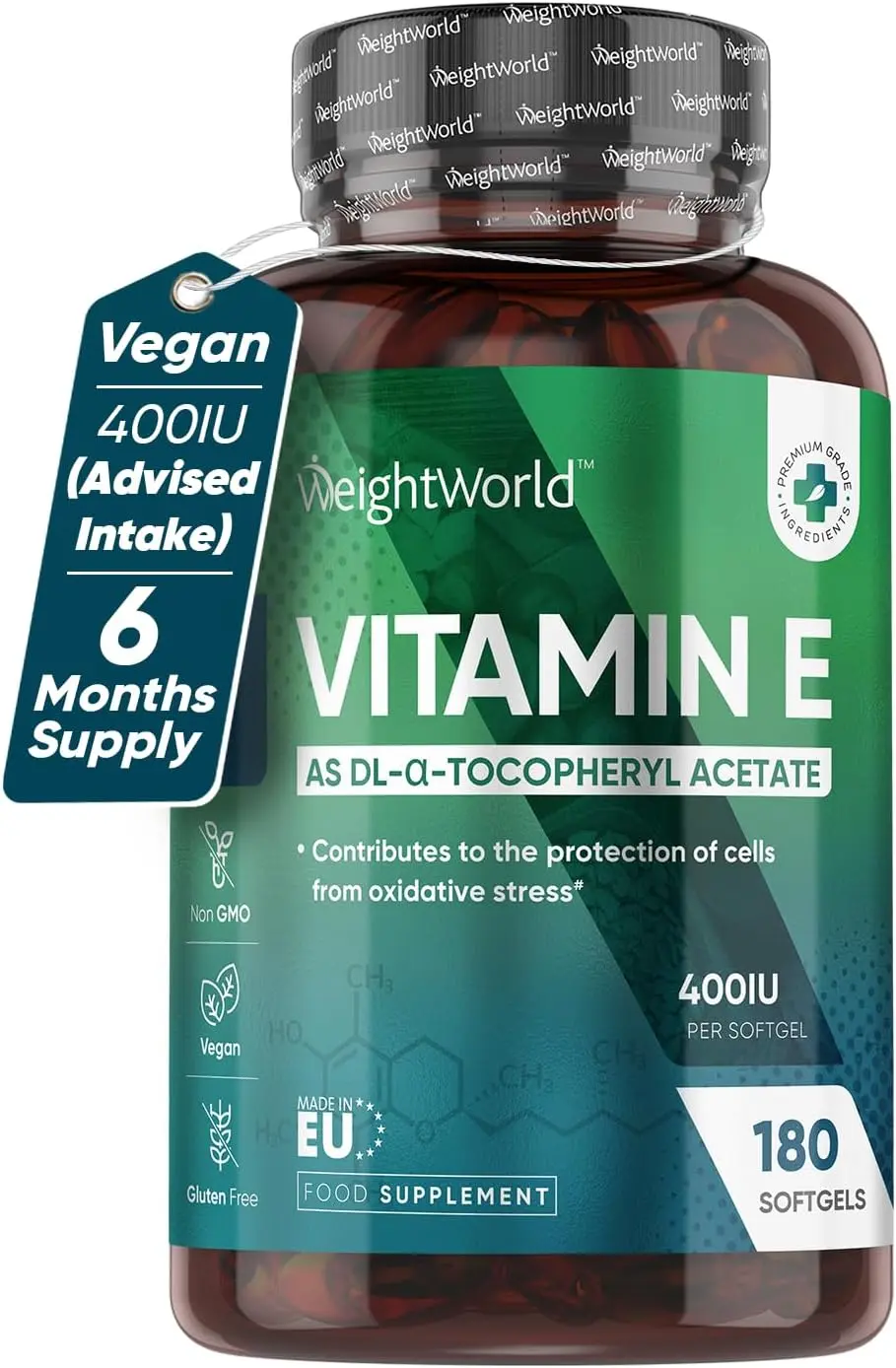
Vitamin E
Vitamin E is a fat-soluble nutrient found in peanuts, almonds & avocados. Vitamin E contributes to the protection of cells from oxidative stress (EFSA Claims) caused by an unhealthy lifestyle, which can lead to cell damage.
The presence of potent elements in tocopheryl of Vit E shields them from potential harm for overall wellness.
Our softgels are versatile, allowing you to create your own Vitamin E cream or hair oil by topically adding them to your creams or oils.
The Synergistic Stack: Why DAKE Works Better Together
The real magic happens when you optimise all four of these fat-soluble vitamins together. They work synergistically in ways we're just beginning to understand:
- Vitamin D increases calcium absorption, while K2 ensures it goes to the right places
- Vitamin A and D work together to regulate immune function and cell differentiation
- Vitamin E protects the unsaturated fatty acids that carry these other vitamins
- K2 and A both support matrix Gla protein, critical for tissue health
Implementation: Your 30-Day DAKE Protocol
If you're ready to experience the benefits of optimised fat-soluble vitamin status, here's my recommended 30-day protocol:
-
Baseline Assessment:
- Get a comprehensive blood panel including 25-OH vitamin D, retinol, and lipid peroxidation markers
- Document your current energy levels, skin quality, and any ongoing health concerns
-
Dietary Foundation:
- Increase sun exposure gradually (15-30 minutes midday without sunscreen on arms and legs)
- Add 2-3 servings weekly of vitamin A-rich foods (eggs, liver, wild fish)
- Include K2-rich foods 3-5 times weekly (grass-fed butter, hard cheeses, natto)
- Incorporate vitamin E-rich foods daily (avocados, olive oil, nuts)
-
Strategic Supplementation:
- Vitamin D3 (2,000-5,000 IU daily, adjusted based on testing)
- Vitamin K2 (100-200mcg of combined MK-4 and MK-7)
- Mixed tocopherols and tocotrienols (100-200 IU)
- Consider a small amount of preformed vitamin A if dietary intake is low
-
Absorption Optimisation:
- Take fat-soluble vitamins with your largest fat-containing meal
- Support bile production with bitter foods before meals
- Consider digestive support if fat digestion is suboptimal
-
Track Your Results:
- Document changes in energy, sleep quality, skin appearance, and recovery
- Retest blood markers after 60-90 days to adjust dosages
One-a-Day ADEK
Fortified with vitamin A, this Fat-soluble vitamin complex helps maintain correct eye vision while supporting proper condition of mucous membrane and skin regeneration for a youthful skin complex.
Enriched with vitamin K which is necessary for the proper functioning of the body, regulates the blood clotting process, and also affects the maintenance of normal bone mineral density.
Beyond Vitamins: The Broader Context
While optimising these four vitamins can create dramatic improvements, remember that they work within a larger biological context. Support your DAKE protocol with:
- Adequate magnesium (critical cofactor for vitamin D)
- Optimal fatty acid balance (especially omega-3s)
- Circadian rhythm entrainment
- Strategic fasting protocols
- High-quality sleep
The Bottom Line
Biohacking isn't always about the newest, most exotic interventions. Sometimes the biggest performance gains come from optimising the fundamentals that modern life depletes.
The DAKE vitamins represent an opportunity to dramatically upgrade your biology with relatively simple interventions. By ensuring optimal levels of these four fat-soluble nutrients, you're giving your body the basic tools it needs to repair, regenerate, and perform at its highest potential.
Have you experimented with optimising these vitamins? I'd love to hear your experiences in the comments below!
To your optimised health!
